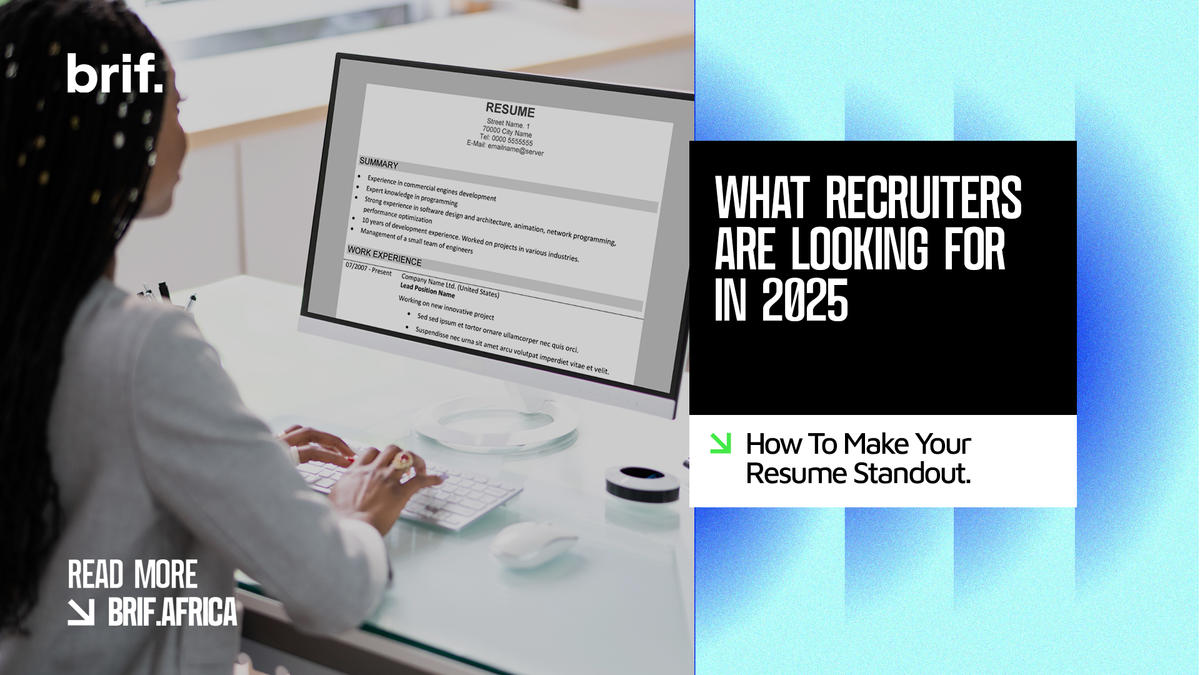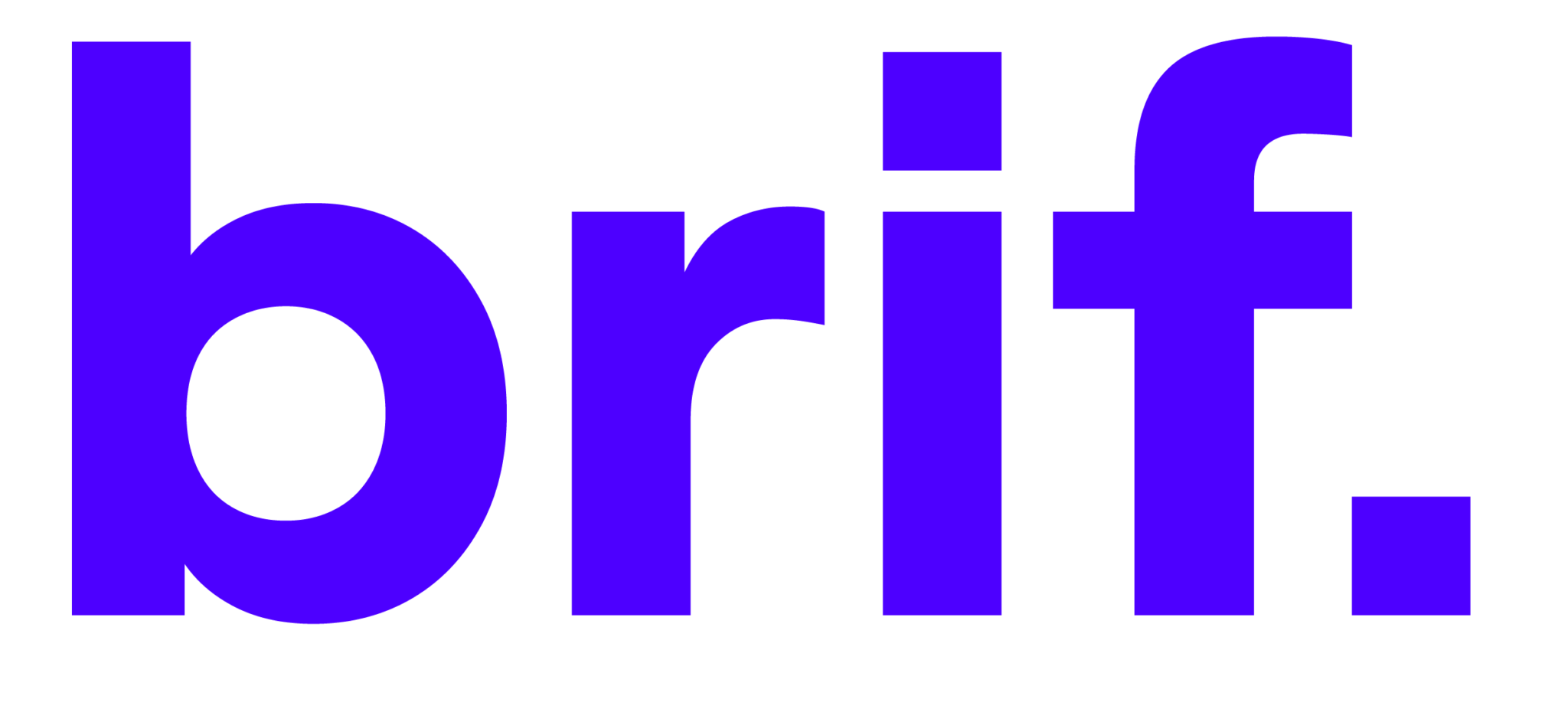What Recruiters are Looking for in 2025: How To Make Your Resume Standout.
Let’s be real…job hunting can feel like searching for water in the desert. You send out countless resumes, get ghosted by recruiters, and start wondering if your emails even reach human beings.

Introduction
Let’s be real…job hunting can feel like searching for water in the desert. You send out countless resumes, get ghosted by recruiters, and start wondering if your emails even reach human beings.
Sounds familiar? You’re not alone. But here’s the good news: 2025 is not just another year—it’s the year you crack the code to make your resume stand out.
A few weeks ago, I had an online session with a tech community where I shared insights on crafting a standout resume. The discussion was eye-opening. Many participants, some already done with university, had little to no knowledge about structuring a strong resume. They were applying for jobs with documents that barely showcased their skills or potential.
That session made me realize something: so many talented young Africans are missing out on great opportunities simply because they don’t know how to present themselves on paper.
That’s why I’m writing this article. If you’ve ever sent out countless resumes and heard nothing back, or if you’re unsure how to position yourself in today’s job market, this is for you.
Let’s break it down—recruiter style.
1. The Recruiter’s First Glance: Hook Them in Seconds
Here’s a hard truth: recruiters don’t read every resume from top to bottom. In fact, studies show they spend an average of 6-7 seconds scanning before deciding whether to continue.
That means your headline matters.
- Don’t just write “Recent Computer Science Graduate.” Instead, say: “Tech Enthusiast | Software Developer | AI & Cybersecurity Passionate”
- If you’re in marketing, don’t just say “Marketing Graduate.” Instead: “Creative Digital Marketer | Social Media Strategist | Content Wizard”
The key? Make your skills and interests pop immediately.
2. Skills Over Degrees: What Can You Do?
A recruiter at a top company in Accra once said, “I don’t care about degrees as much as I care about skills.” That’s a major shift.
In 2025, recruiters are looking beyond traditional education. They want proof of skills. Here’s how you show that:
- Projects: Did you build a website? Designed graphics for a local business? Contributed to an open-source project? List them.
- Certifications: Platforms like Coursera, Udemy, and LinkedIn Learning offer certifications that prove you know your stuff. Add them.
3. Beyond the Buzzwords: Show Real Impact
You know how everyone’s resume is filled with words like “hardworking,” “team player,” and “detail-oriented”? Yeah, recruiters are tired of that. Instead of saying you’re hardworking, prove it. Did you increase sales by 30%? Help launch a new product? Spearhead a project that saved time and money? Put that in numbers! Recruiters love seeing measurable results.
Example: Instead of writing "Assisted in social media management," say "Grew Instagram engagement by 50% in three months by launching an interactive campaign."
4. Digital Skills Are Non-Negotiable
Listen, we’re in the digital age. Even if you’re applying for a job in sales, HR, or even customer service, recruiters expect you to have some level of tech skills. Can you use Excel beyond just opening it? Do you know how to analyze data, automate tasks, or navigate AI tools? The more digitally fluent you are, the better.
Hot skills in 2025: Data analysis, AI tools, prompt engineering, digital marketing, coding (even basic HTML and Python), and project management software like Asana or Trello.
5. Soft Skills Matter More Than Ever
No, “soft skills” don’t mean weak skills. In fact, they’re the game-changers in a competitive job market. Recruiters are looking for emotional intelligence, problem-solving, good communication, and adaptability. Companies don’t just want workers; they want thinkers, people who can lead, communicate effectively, and work well under pressure.
Pro tip: Instead of just listing “communication skills,” show them. Mention a time when you led a team, resolved a conflict, or presented an idea that got approved.
6. A Resume That Tells a Story
Think of your resume as a trailer to a movie (starring YOU). It should tell a compelling story of your journey, your wins, and what you bring to the table… yeah, what you bring to the table. Use bullet points, clear headings, and strong action verbs. Make sure your resume is clean, easy to read, and no longer than two pages.
📌 Key sections to include:
- A strong summary (like an elevator pitch about you)
- Work experience (impact-driven)
- Key skills (both technical and soft skills)
- Certifications and side projects (especially important for fresh graduates!)
7. Tailor Your Resume for Each Job (No Copy-Paste Business!)
Ever sent out 50 applications using the same resume and got no response? That’s the problem. One-size-fits-all resumes don’t work anymore.
- Analyze the job description. Find the keywords they use (e.g., "data analysis," "team collaboration," "problem-solving").
- Match those keywords in your resume. If they want “leadership,” don’t just say you led a project—show how your leadership made an impact.
Recruiters use ATS (Applicant Tracking Systems) to filter resumes based on keywords. If yours doesn’t match, it might not even reach human eyes.
Pro tip: If a job description mentions “data-driven decision-making,” don’t just list “data analysis” on your resume—show how you used data to drive results.
8. Show Personality: You’re Not a Robot
Your resume isn’t just about skills; it’s about you.
- Add a short “About Me” section that gives a glimpse of your personality.
- Highlight extracurricular activities (volunteering, leadership roles, community work).
- Don’t be afraid to show creativity. If you’re in a creative field, make your resume visually appealing (but professional).
9. Your Online Presence = Your Second Resume
In 2025, recruiters don’t just stop at your resume. They check your LinkedIn, portfolio, and even social media.
Optimize your LinkedIn – Keep your profile updated, list your experiences, and get recommendations.
Have a portfolio – Whether you’re into tech, writing, or design, a personal website or GitHub account can boost your credibility.
Watch what you post – If a recruiter Googles you, make sure your digital footprint is professional.
Bonus tip: Ask former colleagues or mentors to write you recommendations. It adds credibility to your profile.
10. Side Hustles and Passion Projects Count
Recruiters love candidates who show initiative. Started a small business? Ran a blog? Volunteered for a non-profit? These things tell recruiters that you’re proactive and have real-world experience beyond the classroom.
Example: If you built an e-commerce website for a family business, highlight that! It shows real, practical skills.
Final Thoughts: It’s About Strategy, Not Just Effort
Look, job hunting can be frustrating, but the secret to standing out in 2025 is being strategic. Show real impact, master digital skills, highlight your soft skills, craft a compelling resume, and optimize your LinkedIn.
And most importantly—don’t just wait for job openings. Network, build relationships, and stay visible. The opportunities will come.
Check out this episode on "How to Network Effectively"

Now tell me, which of these tips will you implement first?
Thanks for reading!
I am Nana Boadzi, I share knowledge through stories.
This is Career & Growth Flight—see you in the next one!






